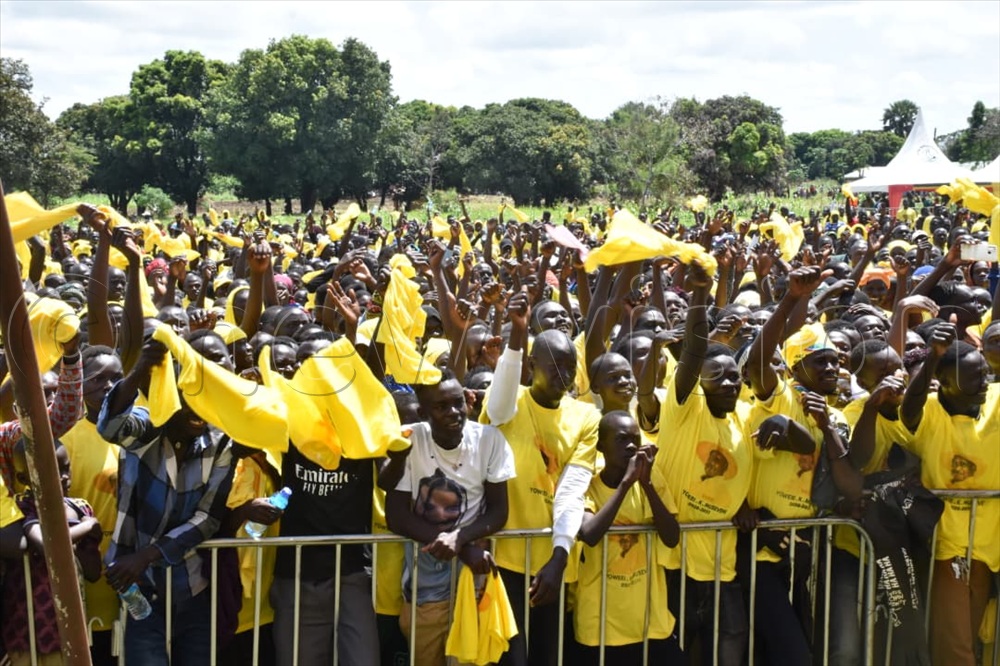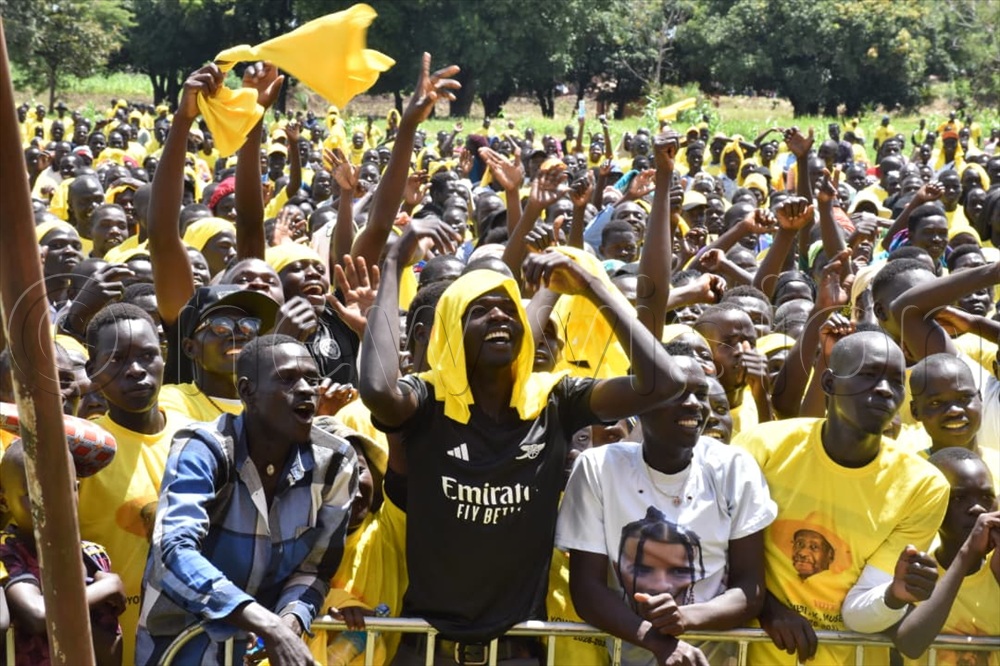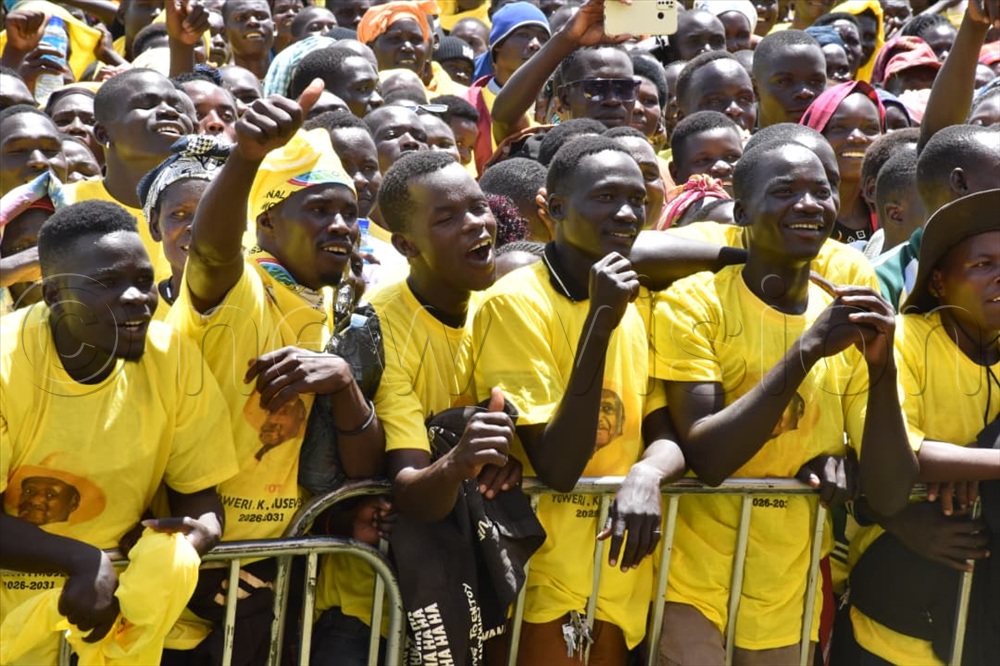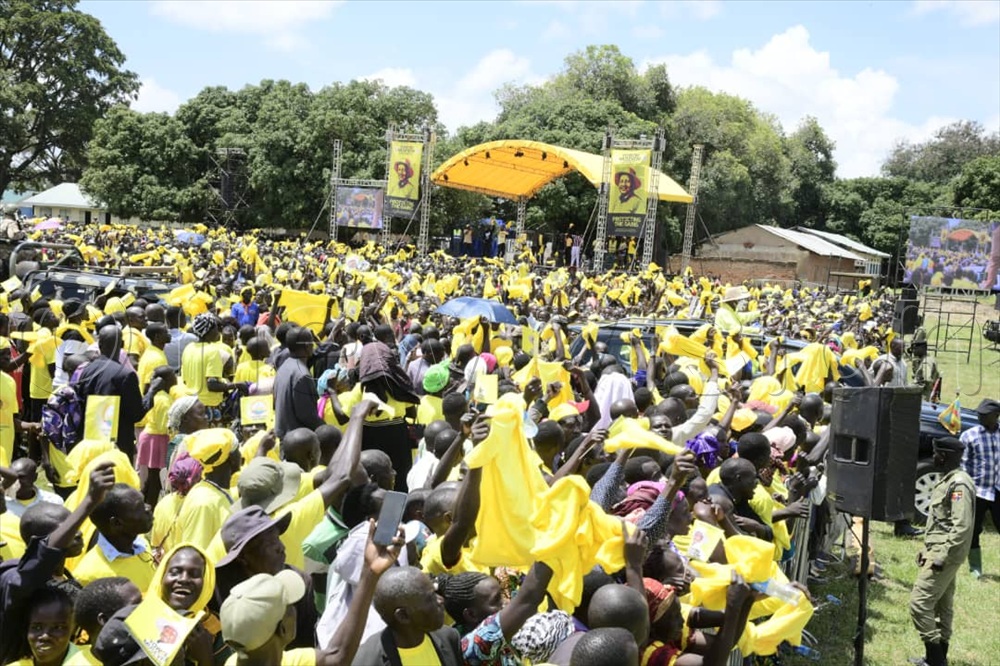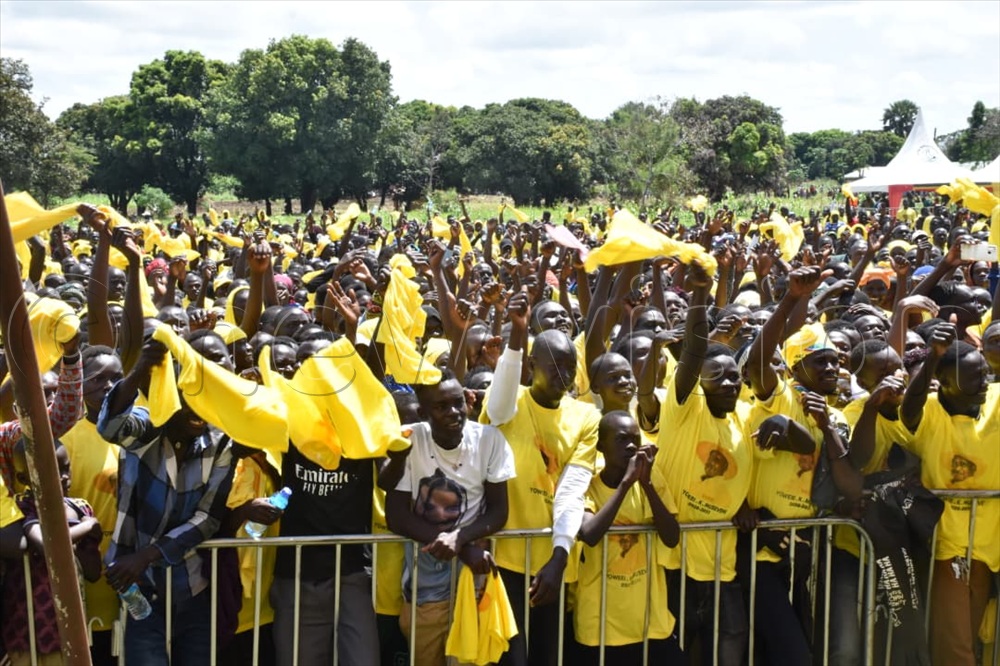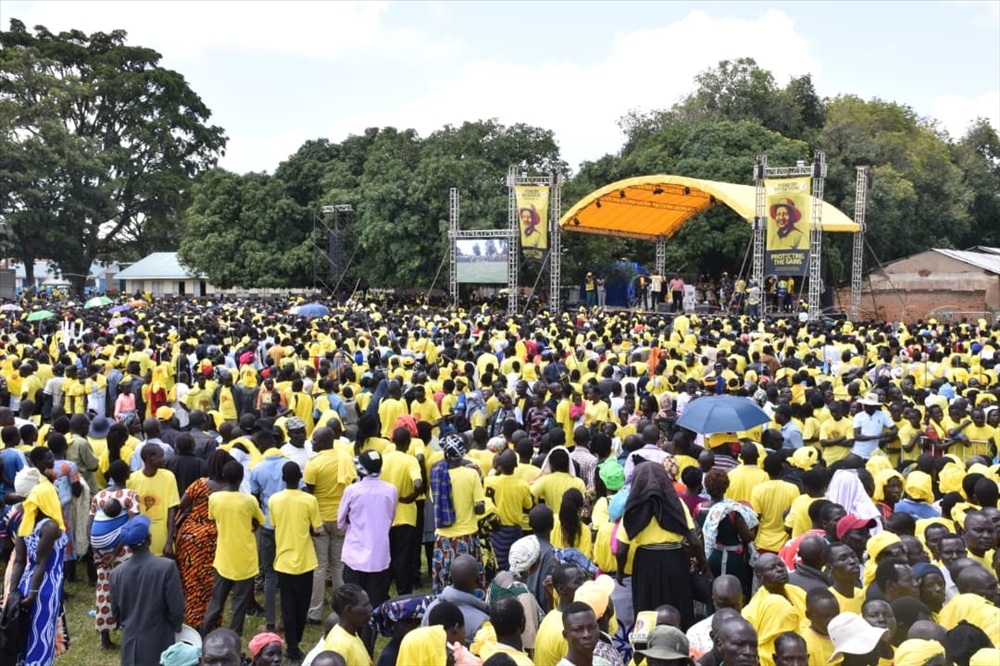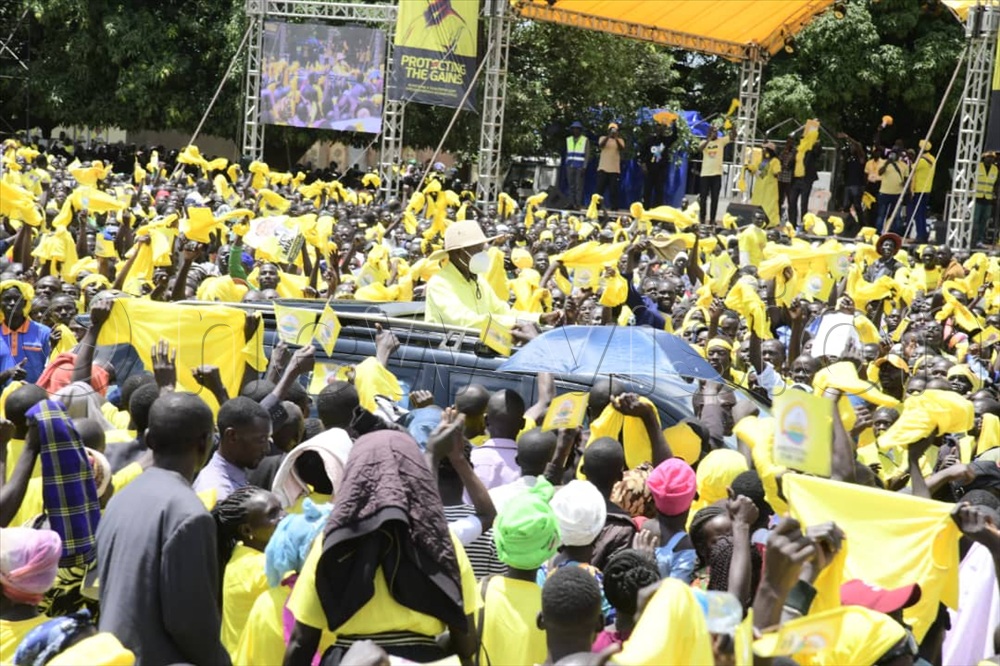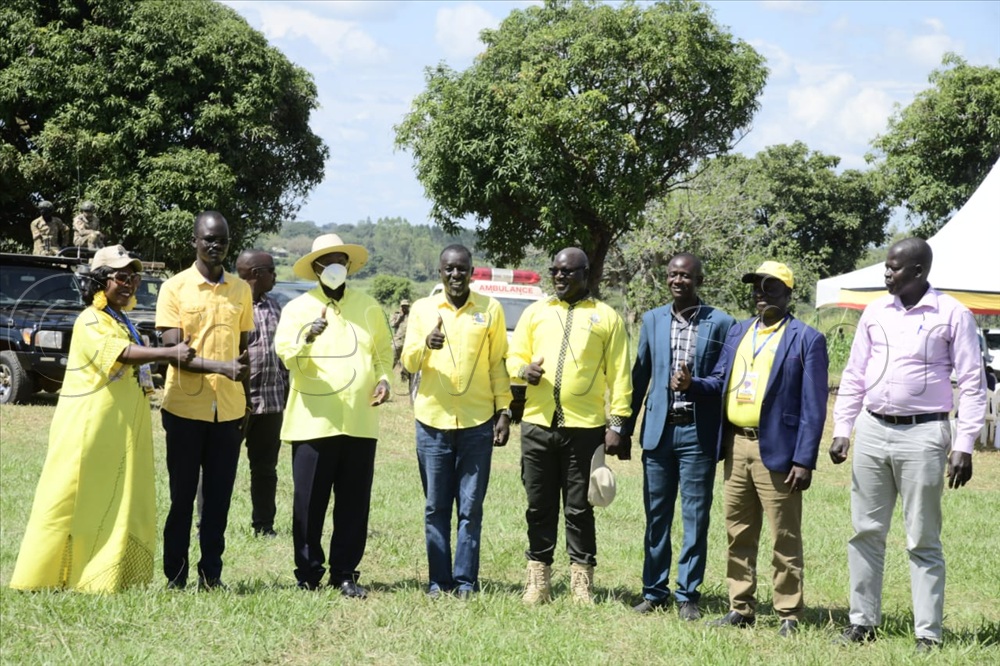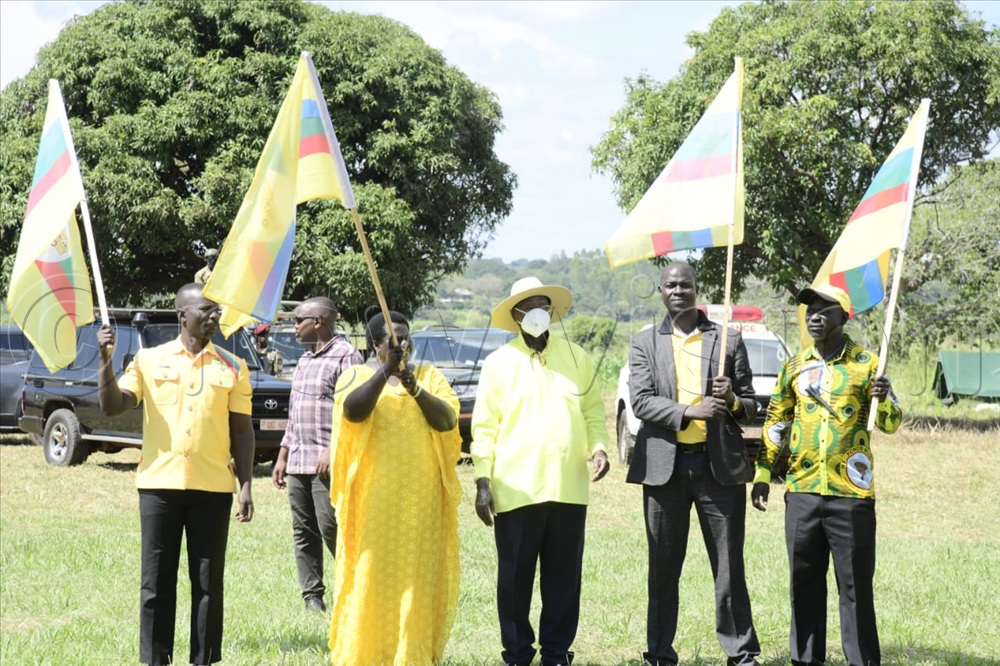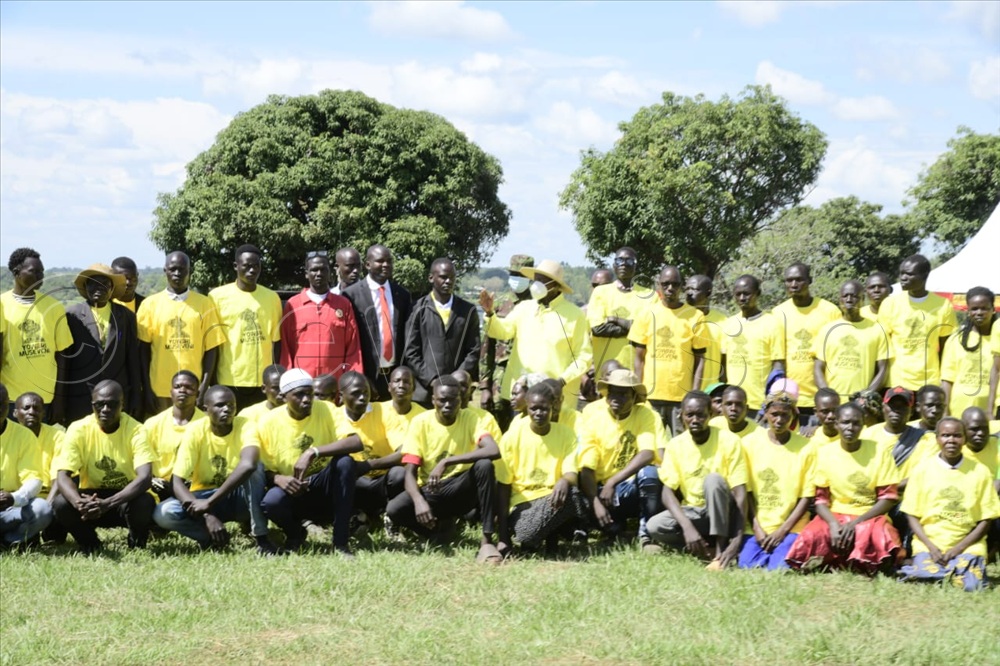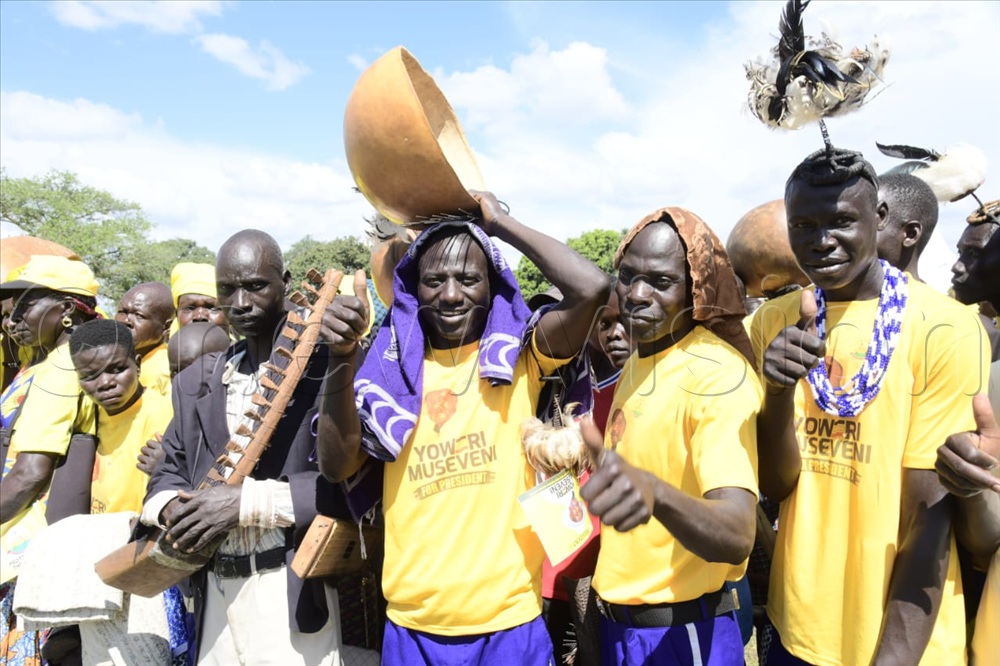📷 Museveni wraps up 2026 election campaign in Acholi today
The National Resistance Movement (NRM) party presidential candidate will later hold his second and last rally of the day in Abim, marking the start of his campaign trail in the Karamoja sub-region.
President Yoweri Museveni arriving at Pajule Primary School playground in Pader district. (Photos by Eddie Ssejjoba and Simon Peter Tumwine)
________________
President Yoweri Museveni will wrap up his 2026 general election campaign in the Acholi sub-region on Friday (October 24), with an afternoon rally in Agago district.
The National Resistance Movement (NRM) party presidential candidate will later hold his second and last rally of the day in Abim, marking the start of his campaign trail in the Karamoja sub-region.
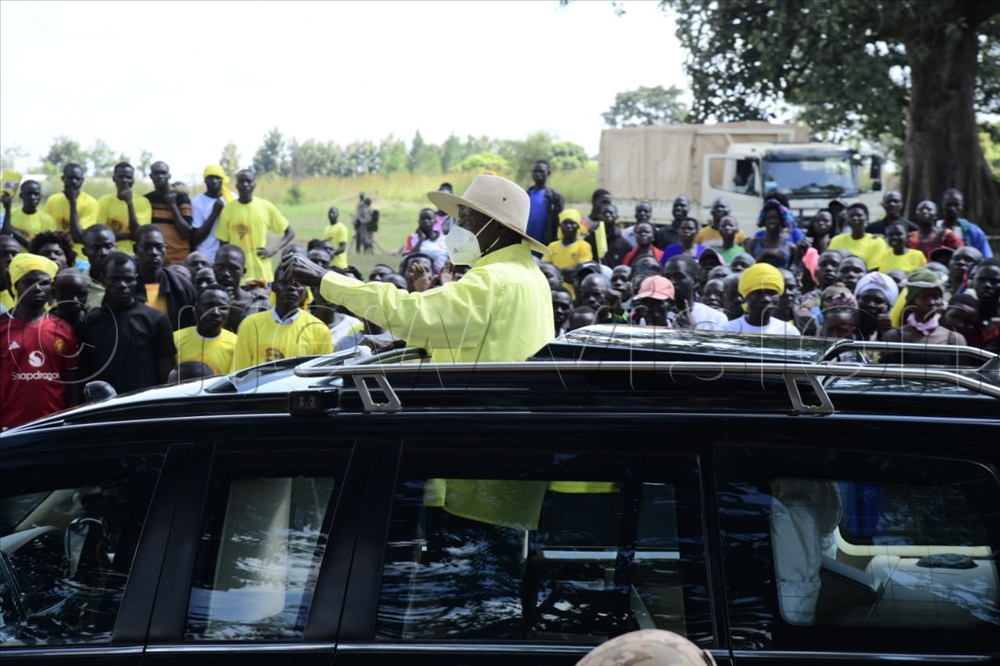
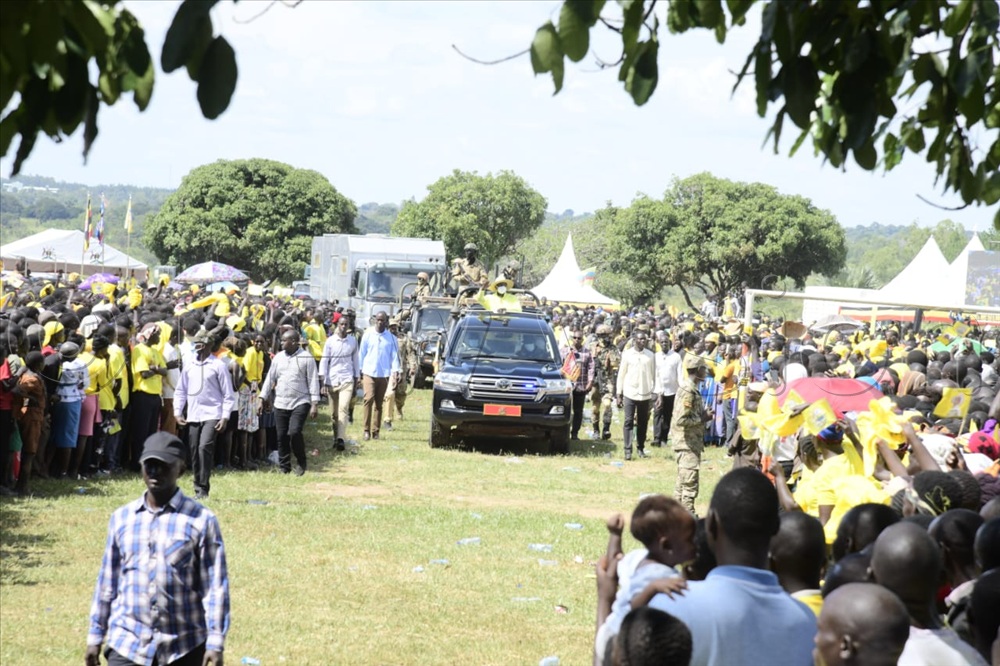
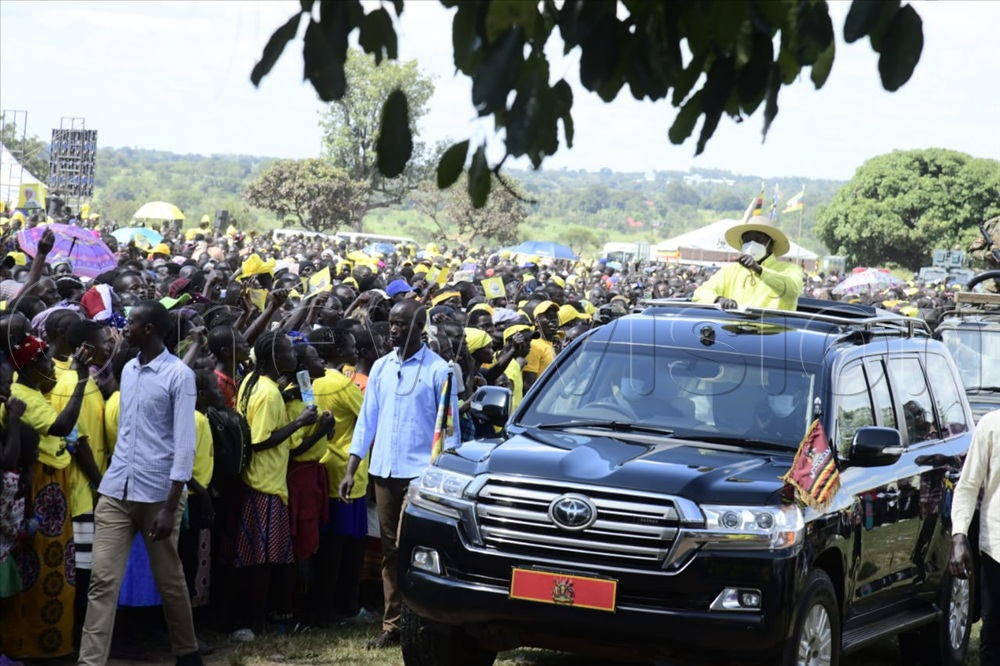
In the last general election, Museveni obtained 47,696 (74.57%) votes in Agago while his main challenger Robert Kyagulanyi of the National Unity Platform (NUP) party garnered 10,559 (16.51%).
In Abim, the incumbent President polled 18, 254 (77.39%) votes while Kyagulanyi got 3,956 16.77%).
While hunting for votes in the sub-regions of Lango, West Nile and Acholi, Museveni explained the NRM manifesto’s seven points, including ushering in an era of peace, fostering development, wealth creation initiatives, jobs, service delivery, markets, as well as unity and political stability.
He said these gains, which he is seeking to protect in the next term, has enabled him and his party to win the majority of votes in the first round of the presidential elections.
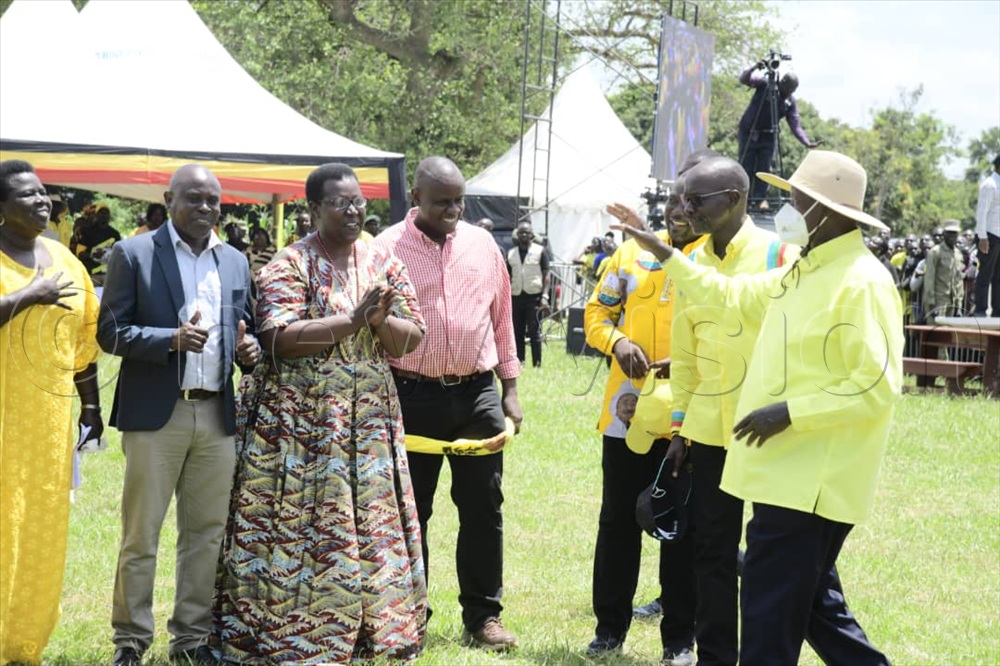
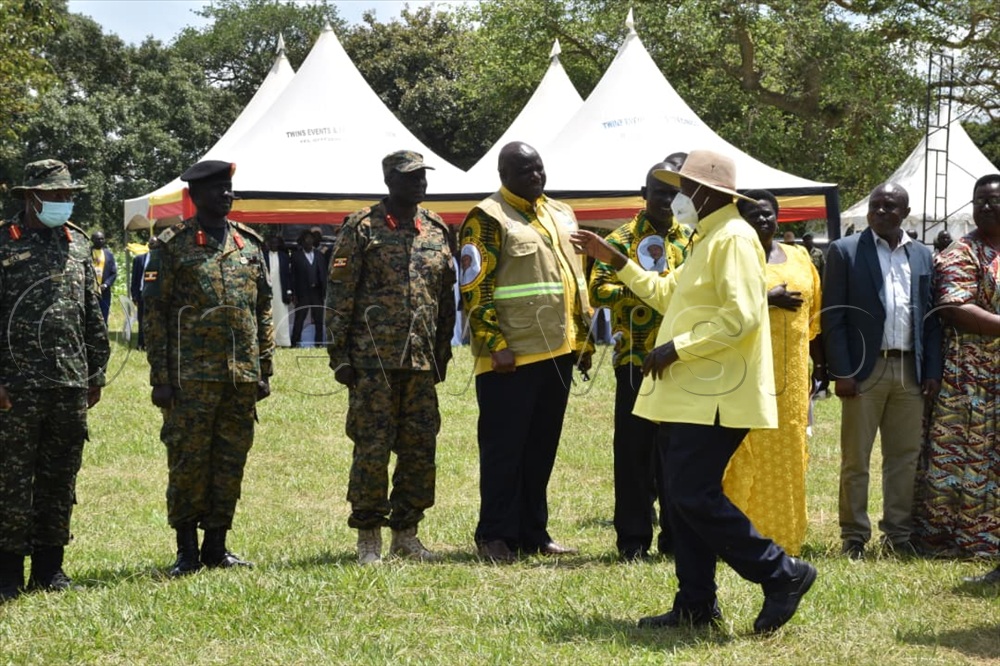
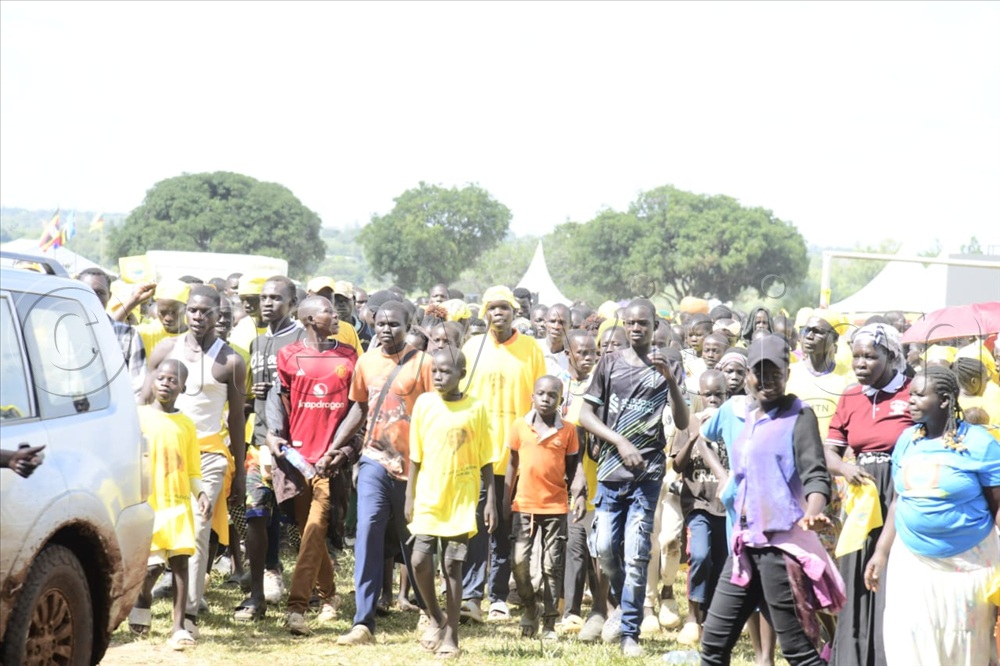
“The first contribution of NRM to Uganda is peace because of the ideology of opposing sectarianism of religion and tribe, and marginalising women and children. That is why we win majority votes in the first round,” he said at one of the rallies.
He noted that is how they have been able to build a political party which is national and has got support everywhere, including of all religious groups.
“In the past, we had a party for the Catholics, a party for Protestants and for Baganda. That is what was the problem at independence and that is why no party could get 50% of the vote in the 1962 elections,” Museveni said.
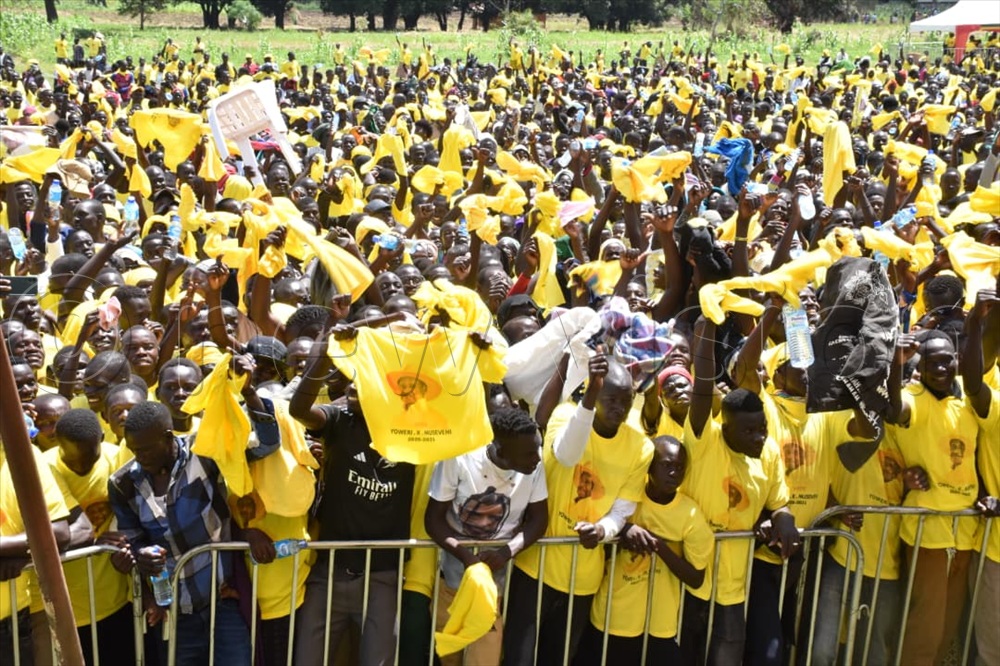
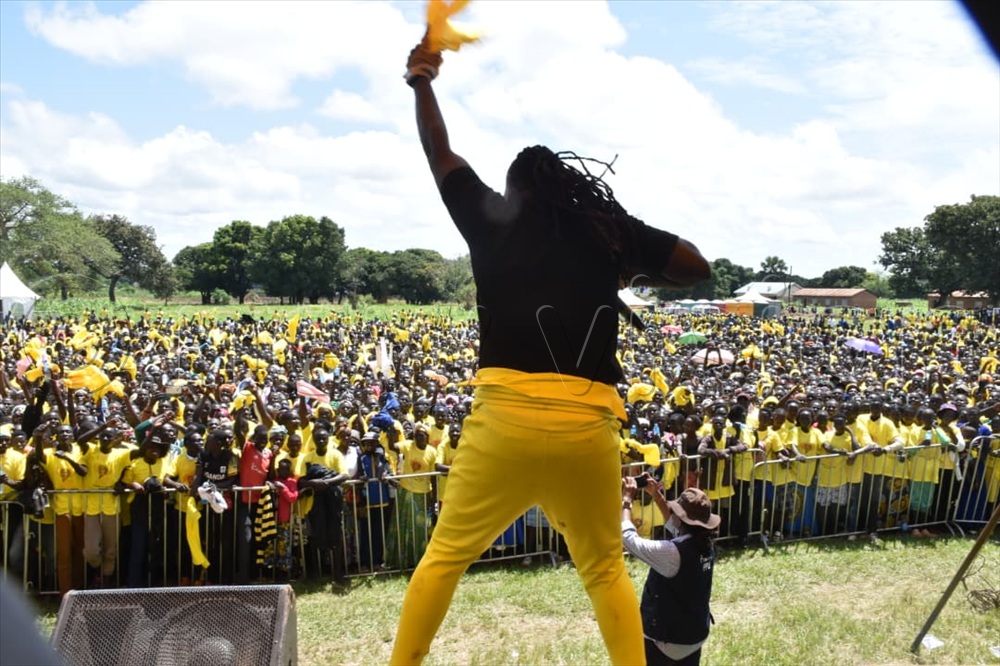
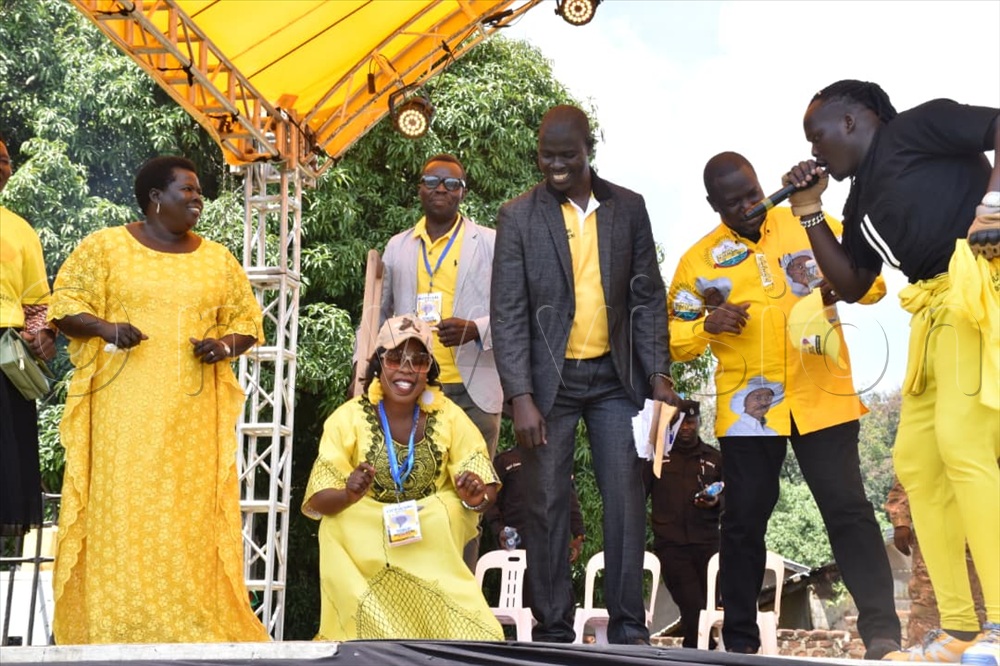
“Therefore, sectarianism of religion and tribe is suicide for the country. We were members of the old political parties ourselves, but by 1965, we had seen this danger. That is how we supported the youth groups, which eventually became NRM,” he explained.
So, he noted, their NRM ideology of unity, patriotism and Pan-Africanism enabled them to unite the politics of Uganda, but also to create institutions such as the army to guard the country, comprising all Ugandans.
